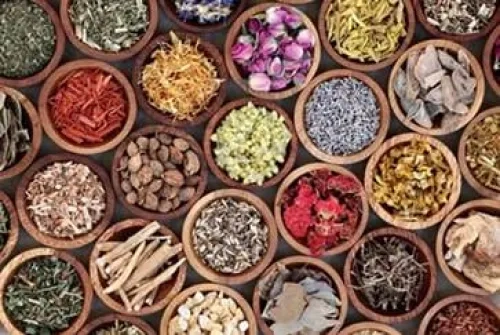Alo Yeditepe
Alo Yeditepe
Phytotherapy and Immune System
Prof. Dr. Gülçin KANTARCI, Yeditepe University Kosuyolu Hospital, Department of Internal Medicine, Nephrology Section.
The use of plants in the prevention or treatment of diseases is as old as human history. In the last 5000 years of world history, we see that all civilized societies left artifacts indicating that they used plants in the treatment of diseases.
These include the Assyrians, Sumerians, Hittites, ancient Egyptians, and more recently the Roman, Greek, Byzantine, and Ottoman civilizations.
Today, phytotherapy is a supportive and complementary treatment method that is applied using medicinally effective parts, extracts, and different forms of plants. It has gained an increasing usage area in our country as well as in the world, in recent years. We know that plants find safe application areas for the prevention of diseases as well as for therapeutic use.
Phytotherapy for Infections
The most common diseases in the world are viral infections that cause upper respiratory tract diseases. Since it is well tolerated, phytotherapy has been increasingly used in the treatment of these diseases, which are known to cause serious morbidity, mortality, and economic losses. Some compounds obtained from plants, especially flavonoids, have been shown to have antiviral effects. If virus molecules enter the living organism and defeat the body's immune system, it is almost impossible to prevent their spread in the body. With phytotherapy applications, both the immune system can be strengthened and an antiviral effect can be achieved. Viruses manipulate the metabolic phases of the host cell for their repeated replication. It is known that viruses can only replicate in a single mode, and this allows them to be easily removed. Viruses use special enzymes to infect and replicate. Stopping these enzymes also stops their metabolism. For example, the proteolytic enzyme separates the viral polyprotein precursor and allows the virus to mature. Therefore, virus metabolism or replication can be stopped using special inhibitors. Synthetic drugs are used to prevent the replication of the virus, today. But the challenge in drug therapy comes from low efficiency, damage to healthy cells, and viruses’ gaining immunity against drugs. Medicinal plants are a very important source of new and effective antiviral treatments. Demand for effective antiviral drugs is increasing in the treatment of viruses that are the source of viral diseases, especially hepatitis virus, and human immunodeficiency virus (HIV).
The Cistus plant genus contains herbal polyphenol compounds. Polyphenols, on the other hand, are known as powerful antioxidants besides their antibacterial, antifungal, and anti-inflammatory effects. Anti-bacterial and antiviral efficacy has been demonstrated in various studies. Polyphenols are a group of chemical compounds found in large proportions in human and plant diets. The total amount taken in the daily diet is about 1 g. Plant-derived polyphenols are very beneficial to human health with their strong antioxidant effects. Their most important benefits are their protective effect on the heart, supporting the biological activity of vitamin C, preventing premature aging, and preventing virus-bacteria binding. Cistus Incanus, a species from the Cistaceae family, is very rich in polyphenols. Cistus Incanus (Pink Spruce) has many varieties and is found in a wide region from the Mediterranean to the Caucasus. It contains phenols. Plant extract contains a high level of polymeric polyphenols. The antibacterial and antiviral activity of this plant species has been known for a long time. In addition, the antiviral activity of the extract of this plant against the influenza A virus has been demonstrated.
Apart from influenza, the Cistus Incanus plant also has antiviral activity against the HIV-1 virus and flaviviruses. The plant extract, particularly rich in polyphenols, targets the envelope proteins of the virus. In this way, it prevents the virus from binding to host cells. It has been observed that viral replication is inhibited, especially when used in cases resistant to routine antiviral therapy. It also has direct activity on the envelope proteins of the Ebola virus from the Flavivirus family.
It has been found in several studies that, cistus Incanus plant extract inhibits the growth of bacteria such as Staphylococcus Aureus and Escherichia Coli. In addition, polyphenols in green tea prevent the attachment and proliferation of Streptococcus mutants, which can often cause caries, to the oral cavity and may have a bactericidal effect.
Immune System and Phytotherapy
Studies are showing that effective results are obtained with phytotherapy regarding the strengthening of the immune system. Tea made from elderberry, ginger, sage, black pepper, and Melissa leaves strengthens the immune system. The flavonoids and anthocyanins in the elderberry plant have an antioxidant effect as well as stimulating the immune system and increasing the body's resistance.
The antiviral effect of Melissa Officinalis aqueous extract, which is common in our country and known as (boy herb) and used for its healing effect, especially for herpes, has been proven by researchers in 2 clinical studies and 3 in vitro studies. Clinical research has been conducted for its antiviral effect against Herpes Labialis virus and in vitro studies have been conducted against HIV, Influenza, and Vaxinia viruses, respectively.
Studies have shown that melissa cream gives positive results in reducing symptoms in Herpes simplex lesions and in treating infections. It is known that the volatile components contained in sage are useful in infections and inflammations in the mouth and throat (such as pharyngitis, and gingivitis).
The stimulant, analgesic and antipyretic effects of piperidine in black pepper on the central nervous system were also detected in recent years. In addition, Omega-9 fatty acids found in oils such as olive oil and hazelnut oil also positively affect the immune system.
Effects of Foods on Immunity
- Vitamin A in yellow, orange-colored, and green vegetables and fruits, such as eggs, milk, fish, spinach, oranges, carrots, green peppers, and apricots, is strong. Consuming these foods in certain amounts plays an important role in preventing diseases.
- Vitamin C ensures the removal of harmful substances from the body and strengthens the defense system. Foods such as green pepper, parsley, cress, arugula, cauliflower, spinach, orange, lemon, tangerine, and rosehip contain plenty of vitamin C. Salads, like fruit juices, should be prepared just before consumption to prevent loss of vitamin C.
- The most important feature of vitamin E is that it is a powerful antioxidant. Oily seeds such as hazelnuts, walnuts, almonds, oils, green leafy vegetables, and legumes are rich in vitamin E.
- Omega-3 fatty acids found in fish, fish oil, hazelnuts, and walnuts are powerful antioxidants and are effective in strengthening the immune system. In addition, Omega-9 fatty acids found in oils such as olive oil and hazelnut oil also positively affect the immune system.
- Zinc reduces the frequency of life-threatening infections. The best sources are foods of animal origin, such as red meat and shellfish, and liver.
- Kefir and yogurt strengthen the intestinal flora and create resistance against gastrointestinal tract infections. Yogurt is prebiotic, meaning it increases the growth of probiotics. Kefir is probiotic and prevents tumor formation. They also produce a large amount of vitamin synthesis. Biotin produced by kefir microorganisms also increases the absorption of other B complex vitamins.
- Honey is used as a natural remedy for infections in the mouth, throat, and bronchi.
- Garlic contains plenty of water, carbohydrates containing fructose, sulfur compounds, protein, fiber, and free amino acids. Garlic also contains high amounts of saponin, phosphorus, potassium, sulfur, and zinc, moderate amounts of selenium, vitamins A and C, and small amounts of calcium, magnesium, sodium, iron, manganese, and B complex vitamins.
- Medicines prepared from the fruits of elderberry are used in the treatment of upper respiratory tract infections. Elderberry has both an immune system-boosting effect and an antiviral effect.
We can lead a healthier life with the right treatment approaches of specialist physicians and the opportunities of today's medicine, by not forgetting the fact that we can fight many diseases with the right choice of the foods we consume and preventive/therapeutic plants.
It should be kept in mind that herbal treatments and foods may interact with the drugs we use, that is, they can increase or decrease the desired effects of the drugs in the prevention and treatment of diseases. Before applying these treatments, the treating physician should be consulted.
About
Faculty and Year of Graduation:
Uludag University Faculty of Medicine 1984-1990
”
See Also
- What is Hypoglycemia?
- Common Misconceptions About Kidney Transplantation
- Kidney Diseases and Treatment Methods
- 10 Questions About Kidney Transplantation
- How Should the Daily Salt Consumption Amount Be?
- Misconceptions About Hypertension
- Chronic Kidney Disease and Treatment Methods
- What is Hypertension?
- Things Wondered About Kidney Transplantation and Organ Donation
- If You Consume More Than 5 grams of Salt...
- The Frequency of Hepatitis Seen in Dialysis Patients Is Decreasing
- 12-Year-Old Tuğba Nur Survived with Transplant
- Excess Protein Does Not Increase Muscle Mass, and It Impairs the Kidneys
- AV FISTULA Should Be Done At The Right Time For Hemodialysis Patients
- Pay Attention to Kidneys in Pregnancy!
- He Held On To Life with His Brother's Kidney
- Recommendations to Strengthen the Immune System
- Kidney Failure Caused by Ear Obstruction
- There is Still a Lot of Misconception About Organ Donation
- He Lost 20 Kilograms in 40 Days for His Wife
- One Out of Every Seven People Has Kidney Disease
- How Should Kidney Patients Be Protected From COVID-19 Coronavirus?
- What is Propolis? How to Use Propolis?
- Improper Nutrition Invites Kidney Failure
- Important Warning from the Expert: “Not Adding Salt to Meals Alone Is Not Enough”
- Tissue Harmony Is Also Important for Success in Kidney Transplant
- Hereditary Kidney Diseases Are Underrecognized!
Alo Yeditepe





